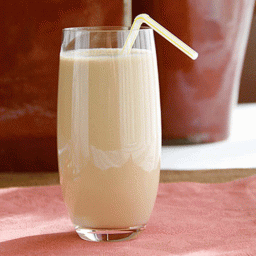
Image via Wikipedia
Whether it be a Handlebar, a Fu Manchu or a Mr. Belvedere, mustaches are making their appearances this month thanks to Mo-vember. The prostate cancer awareness project first started in Melbourne, Australia in 1999 and has been gaining attention ever since. What is the message from this month-long whisker-fest? Men, go get screened for prostate cancer. So in the spirit of Mo-vember, this author thought it was only fitting to share some of the facts on prostate cancer.
The good news is that if you are diagnosed with prostate cancer your odds of surviving five years are roughly 90%. The bad news is that researchers haven’t figured out how to prevent prostate cancer, and this could be because they are looking at two different versions of the disease. The first is a slow-growing version that men may die with, but not die from. The second is an aggressive and potentially fatal version which has a faster onset and progression. Both forms of the cancer seem to exist, but we do not yet understand why there is a difference and what to do about it.
What we do know so far is that there are certain things that help the prostate and other things that harm it. Below are a look at a couple of things researchers are working on.
1) Green Tea
Several studies have shown a link between a high consumption of green tea and a dramatic reduction in prostate cancer. The downside is the affective amount is at least 5 cups a day, an amount that few people drink. High quality green tea extract is being looked at as a supplement, but unfortunately we are not there yet. In the mean time, green tea has many other fantastic qualities, and it is an easy and inexpensive way to potentially protect the prostate. So drink up!
2) Tomatoes and Lycopene
While lycopene can be found in watermelon, carrots and papayas the greatest quantity comes from tomato sauce. Studies have shown that men who had the highest levels of lycopene in their blood were 60% less likely to be diagnosed with advanced prostate cancer. Whether it’s lycopene or something else in tomato products, we know that it’s certainly beneficial to include tomato products in your diet.
3) Flaxseed
The estrogen-like compounds found in flaxseed may be responsible for slowing the rate of cell division in the prostate gland. This could translate into slower growth of cancerous tumours. Further research will dictate how the role of flaxseed fits in to prostate cancer treatment, but in the mean time eating a tablespoon a day may be a reasonable supplement.
4) Diet, Exercise and a Healthy Lifestyle
We all know the benefits of following the advice of author and health activist Michael Pollan. “Eat food. Not too much. Mostly vegetables.” Regarding exercise we know that excess weight wreaks havoc on all of our bodily systems. Now we have other reasons eat well and remain active. The risk of fatal metastatic prostate cancer is 54% higher in those who are obese compared to those of normal weight. Other studies have shown that men who are overweight are no more likely to get prostate cancer, but they are more likely to die of the disease. In other words, this is one of the thousands of reasons to eat well and exercise.
In conclusion, prostate cancer awareness is a year round effort. For this month though, go ahead and grow a mustache, but more importantly call your doctor and arrange for a prostate check.
 Written by: Dr. Christine Davis, Naturopathic Doctor
Written by: Dr. Christine Davis, Naturopathic Doctor

 Written by: Dr. Christine Davis, Naturopathic Doctor
Written by: Dr. Christine Davis, Naturopathic Doctor


